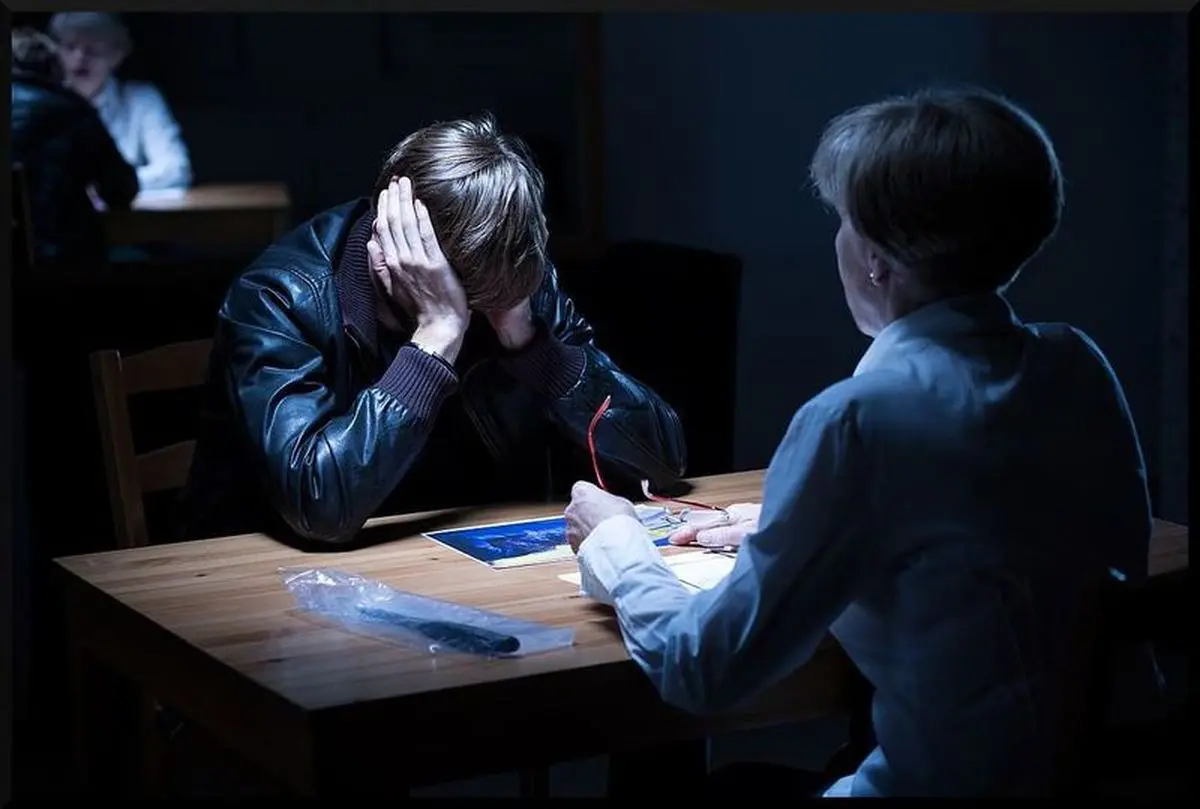By , Leave a Comment

Table of Contents
Say No to Juvenile Interrogation
You arrive at the police station. Your child’s already there, transported by police.
A detective asks for permission to speak with your child.
Say “No” to juvenile interrogation. Don’t let police speak with your child.
Your Child’s Rights
Like anyone arrested in New York:
- Your child has the right to remain silent.
- Anything your child says can be used as evidence against your child.
- Your child has the right, upon request, to have a lawyer present during police questioning.
- If your child can’t afford to hire a lawyer, your child has the right to have a free lawyer present during questioning.
- While your child is in custody, police may not ask your child questions before advising your child of these rights.
- While your child is in custody, your child must agree to give up these rights, before police may ask your child questions.
Children under the age of 18, have the following important rights:
- Police must immediately notify a parent or “other person legally responsible” for your child’s care, or a person who lives with your child, that police have arrested your child.
- If you’re the person notified, police may not ask your child questions without first advising you, in your child’s presence, of the right to remain silent and the right to counsel. (But, if you don’t go to the location where police are holding your child, your child loses this right.)
These last two rights recognize that children need adult assistance to understand and assert their rights.
Your child needs your help to avoid juvenile interrogation.
Help your child by refusing to let police speak with your child.
Your Emotions
When you learn that your child has been arrested, you should be alarmed. Run to the police station to prevent juvenile interrogation.
This is the state of mind you need to have. But you might be inclined to do the opposite.
Parent-child relationships can be challenging:
- This might not be the first time your child has been arrested.
- Your child might be having disciplinary problems at school.
- He might be using drugs and alcohol.
- He might be hanging with a bad crowd.
- He might be the source of conflict in your home.
When police notify you that your child’s been arrested, you might assume he’s guilty. You might be angry with him. You might want to let him sit in jail for a few hours.
Your child can’t afford tough love at this moment. He’ll speak with police if you’re not there to intervene. He might confess to committing a crime. He might falsely confess.
Don’t let police add your child’s confession to whatever other evidence they might have.
Set your emotions aside. Get to the police station and protect your child from juvenile interrogation.
Police Manipulation
When you arrive at the station house, police will encourage you to let them speak with your child. They’ll try to manipulate you with words:
- Good parents don’t demand lawyers for their children.
- Good parents teach respect for the law by encouraging their children to speak with police.
- You’ll set a bad example by refusing to let police speak with your child.
- Telling the truth will relieve your child’s conscience.
- The Court will be lenient if it learns that your child confessed.
- The Court will be harsh if it learns that your child didn’t cooperate with police.
- The Court will release your child to your custody if it learns that you encouraged your child to speak with police.
- The Court will send your child to juvenile detention if it learns that you discouraged your child from speaking with police.
- Family Court might take your child away if you encourage your child not to cooperate with police.
- Family Court might take your other children away from you.
Protect Your Child
When you’re the subject of a police investigation, you should never speak with police.
The same holds true for your children. Educate your children at a young age that they should never speak with police.
Remember, though, that police can easily intimidate almost any child to speak with them.
Your child needs you to protect her from speaking with police.
The law gives you the opportunity to advise your child not to speak with police. Use this opportunity. Protect your child:
- Tell the police that they may not speak with your child.
- If you can afford to hire a lawyer for your child, hire one immediately and tell the police you’ve done so.
- If you can’t afford to hire a lawyer for your child, tell the police you can’t afford a lawyer, and that you want a free lawyer for your child.
You’ll feel terrible if your child’s confession is used against her in Criminal Court or Family Court.
Don’t ever let police speak with your child.
Free Consultation
Bruce Yerman is a juvenile crime lawyer in New York City. His office is located in Suite 1803 of 299 Broadway in Manhattan.
If you’d like a free consultation to discuss criminal defense or family law, call Bruce at:
Or email Bruce a brief description of your situation:

Leave a Reply